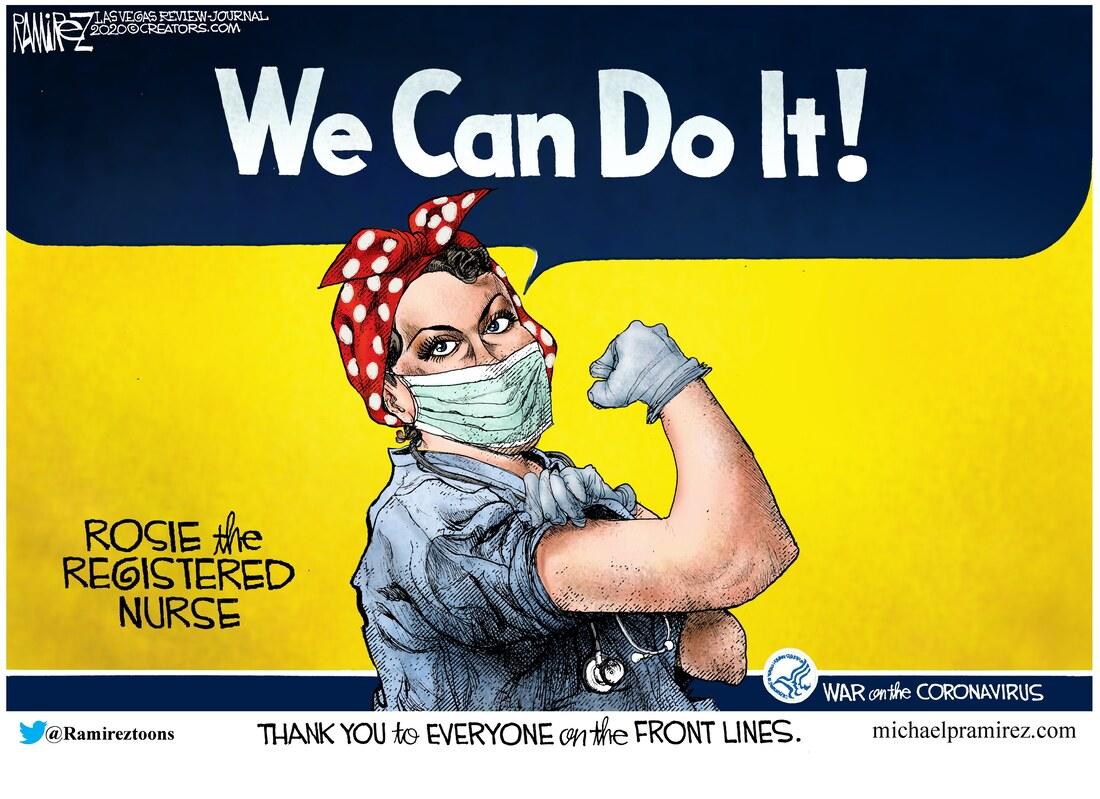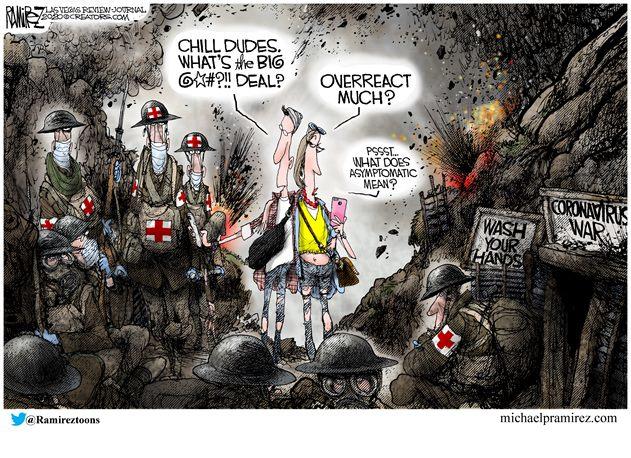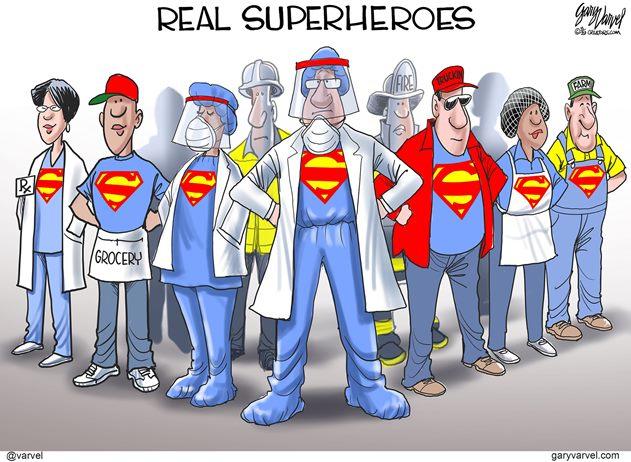Is This The [New] Greatest Generation?
After years of being maligned, millennials and Gen Z members are stepping forward in a way that creates their own “greatest” generational story.
This is not an easy Passover and Easter for the people celebrating those holidays in the midst of a pandemic. My family celebrates both given our mixed Jewish Catholic marriage. At both dinners, one chair will be empty. Our eldest son Benjamin is a premedicine student at George Washington University and working at the only psychiatric hospital in the district as a psychiatric counselor. With the coronavirus raging in the area, and many patients coming from the homeless population, Benjamin does not want to risk transmission to the family, so we have not seen him for weeks.
It is a scene being played out across the country. But it also serves as a reminder of a generation shift worthy of note. Those people on the front lines of this pandemic are members of the much maligned generations of millennials and Gen Z. They have been stepping forward by the thousands to answer a call in what may be their finest moment. However, when Bruce Aylward, a senior adviser at the World Health Organization, was asked of his greatest concerns, two groups were highlighted for two very different reasons. First were older individuals who remain the primary vulnerable victims of the coronavirus. Second were “millennials” often blamed for spreading the disease or failing to take the threat more seriously.
It is a widely stated view, often using sweeping references to the multiple generations as millennials. A Fox News medical expert objected to “these millennials and these younger generations” spreading the disease. Even Deborah Birx of the White House Coronavirus Task Force herself called on this group to stop “socializing in large groups” to curb the infection. It is during a crisis that generations can be deified or demonized. World War Two defined what Tom Brokaw called the Greatest Generation in his 1998 book of the same name. He not only explained why that cohort was our Greatest Generation but noted that a “common lament of the World War Two generation is the absence today of personal responsibility.”
As my students often love to point out, “millennial” is a term that is widely misused by my generation. By standard definitions, many millennials are now entering their 30s and 40s. They are not those kids on spring break blissfully ignoring public health warnings while blatantly proclaiming, “If I get corona, I get corona.” The fact is that even the younger generations are being misrepresented by an errant few. Many young people had read the reports that they were not at high risk of lethality, which remains the case right now. Most did not see the risk to their parents or grandparents, a danger that became far more clear as spring break was ending.
Indeed, the Greatest Generation was a title bestowed with hindsight. After all, while it is true they prevailed in World War Two, other members of that cohort started World War Two. Yet if you look at the faces of courageous hospital workers, first responders, and others in the news today, you are looking at the faces of millennials who have not only showed “personal responsibility” but assumed public responsibility for others in this fight against a deadly invisible enemy. Many did so without proper protective equipment, and many have already gotten sick in the process. Once they are done battling the pandemic, they will be left to deal with trillions of dollars in debt, climate change, and rising international instability.
Obviously, on a holiday like Passover that celebrates the sparing of a first born son, there is added meaning at a time when thousands of our own children are working in essential public health and safety sectors during this pandemic. Our pride in the decision of our son Benjamin to continue to work with psychiatric patients is mixed with continued anxiety about his situation. The reality is that the Greatest Generation is being attended to by members of millennials, Gen X, and even Gen Z. These people are glued to hospital monitors, not Game Boys or Nintendo Switches.
So could they be the new Greatest Generation? Rather than playing beer pong on South Padre Island, these young people are showing up to the front lines, some wearing garbage bags rather than personal protective equipment, to hold the line against one of the most contagious diseases in history. I wish Baby Boomers could take credit for raising them so well. However, I have my doubts. These are the kids we protected against every challenge that traditionally makes for a great generation. We gave them all trophies and declared them all to be brilliant. We removed every obstacle as we hovered above them like helicopter parents. It is astonishing they could even leave the house when many of us were done with them.
To make matters worse, we then cleared a path of accommodation for them in the workplace. In both government and business, older workers were trained how to deal with millennials. This is what is called “reverse mentoring” in which older workers are shadowed by a millennial to teach them how to speak and interact with younger workers. One professional friend was corrected by her mentoring millennial because she failed to compliment a younger worker who brought her document copies.
I asked my class about this image of millennials as very sensitive, trophy demanding, and high maintenance. Certainly, these reverse mentoring programs often seem to be essentially anthropological in character, like training explorers to deal with some inscrutable remote tribe. One of my students responded to my question by asking, “What generation do you think gave us all those participating trophies?” My students universally expressed contempt for the clear insistence of Baby Boomers on making everyone a winner and giving awards for simply showing up. They said it destroyed any value of working hard toward victory. They said they threw out those trophies. Now these same millennials are showing up despite the risk to their own lives, ventilating and feeding my generation.
I was born in 1961, the year President Kennedy famously declared during his inaugural address, “Let the word go forth from this time and place, to friend and foe alike, that the torch has been passed to a new generation of Americans, born in this century, tempered by war, disciplined by a hard and bitter peace.” Baby Boomers have always adored that image of their generation. But we now have recognized that, perhaps despite our best efforts, a new generation has come of age, tempered by adversity and being disciplined by a hard and bitter pandemic. There is no trophy for that. Just thousands of Baby Boomers kept alive thanks to them.
Tyler Durden
Mon, 04/13/2020 – 04:30
via ZeroHedge News https://ift.tt/3chjWbl Tyler Durden


